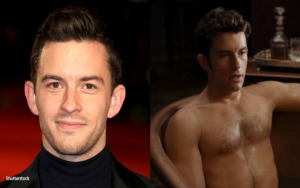
A critical flaw that many “legacy sequels” face is not being able to differentiate themselves from their predecessors in a significant way. While it is often a good thing when a new generation of storytellers can take a different spin on established material, there is certainly a point at which being too reverential ends up becoming a detriment. Gladiator II was able to avoid this issue entirely because Ridley Scott returned to direct the film, and was not interested in simply rehashing what he had already achieved with the original Gladiator. While the fight scenes and visuals are certainly more eye-popping, Gladiator II deals with the intricacies of the Roman political situation more successfully than the original film did.
‘Gladiator II’ Examines a Complex Political Situation
Gladiator II makes the bold creative decision to essentially undo its predecessor’s finale by confirming that nothing that had occurred in the first film actually changed the direction of the Roman Empire. While Maximus (Russell Crowe) was able to defeat Commodus (Joaquin Phoenix) in the Colosseum, his dying wish to restore the chivalry of the Roman Republic was not honored. In the sixteen years that passed, the new Emperors Geta (Joseph Quinn) and Caracalla (Fred Hechinger) have decided to expand their domain by sending Marcus Acacius (Pedro Pascal) on an ambitious conquest of Africa. It is evident that a change of rulership is needed, as Acacius secretly conspires with Lucilla (Connie Nielsen) to take down the Emperors. However, the only way for Acacius to gain the support he needs to be hailed as a “hero” is through conquest, which leads to a massacre in Numidia, which inspires Lucius (Paul Mescal) to seek vengeance.
Every Character in ‘Gladiator II’ Is Flawed
Gladiator II examines the necessity for personal growth, particularly when it comes to those who can shape the viewpoints of the body of citizens. While Lucius starts the film in a position of anger, he ends up realizing that continuing on a cycle of vengeance is only going to bring more destruction; it’s critical that after defeating Macrinus in battle, he calls for both warring factions to seek a peaceful solution. The original Gladiator is certainly one of the greatest historical epics of all time, but Gladiator II examines the murky nature of politics in a manner that provokes striking parallels to the state of the world today.
Gladiator II is in theaters now.
Get Tickets






